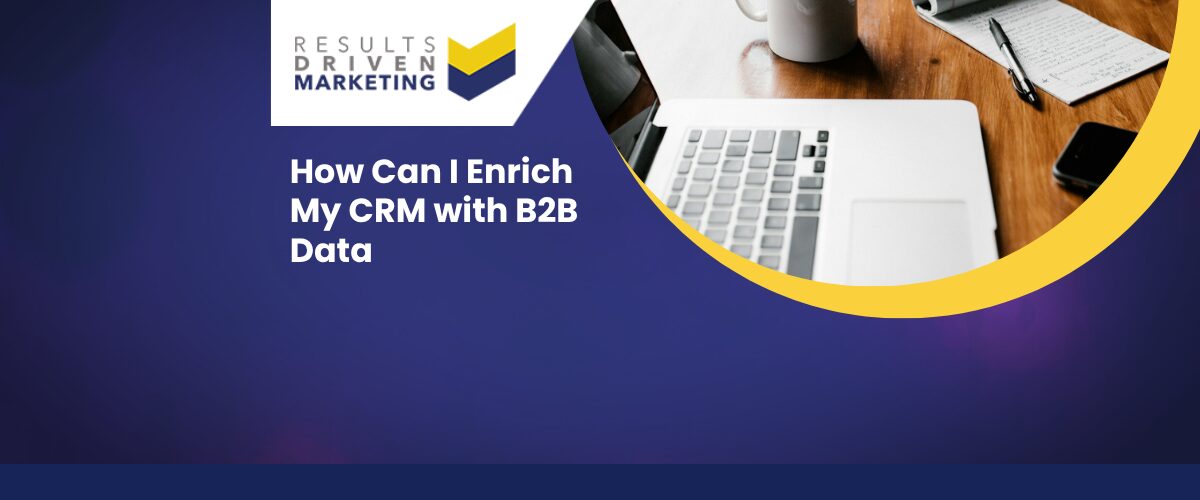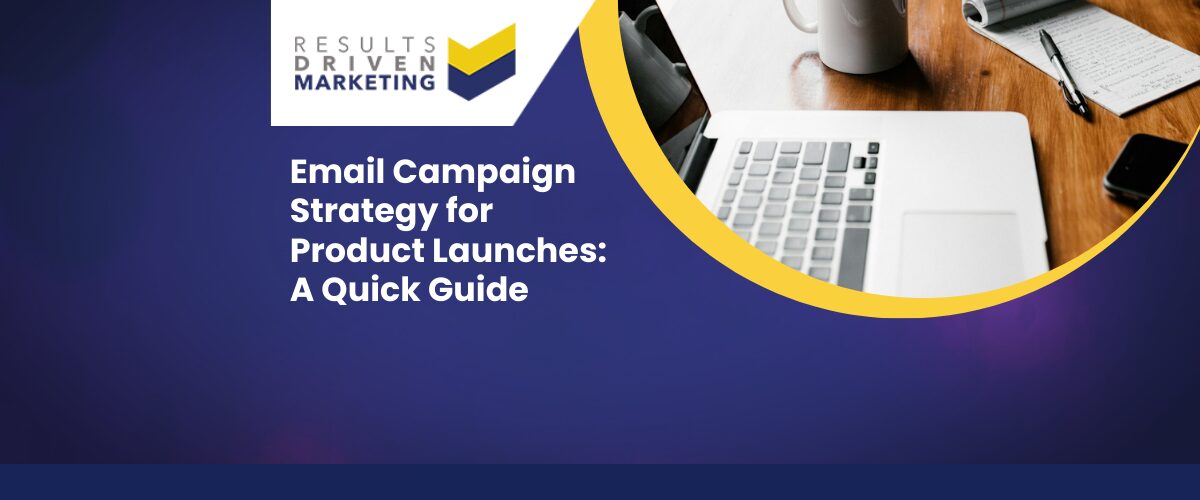
How Can I Enrich My CRM with B2B Data
How can I enrich my CRM with B2B data? It’s a question many SMEs ask when they realise their customer database is holding them back. Outdated contacts, missing job titles, vague company info—it’s all too common. And it leads to poor segmentation, wasted outreach, and missed opportunities.
Your CRM should be a sales engine, not just a contact list. But to make that happen, it needs more than just names and numbers—it needs context. That’s where data enrichment comes in.
In this post, we’ll show you how to upgrade your CRM using accurate, targeted B2B data. You’ll learn what kind of information to add, how to structure it, and how it boosts campaign performance across email, phone, and direct mail. Whether you’re chasing new business or nurturing old leads, enriching your CRM is one of the easiest ways to improve results—without overhauling your whole system.
Table of contents:
What Does CRM Enrichment Actually Mean?
Before we get into the how, let’s clarify the what. When people ask how can I enrich my CRM with B2B data, they’re really asking how to make their existing database more useful for targeting, segmentation, and outreach.
CRM enrichment means adding valuable, relevant information to your existing contacts—so your team has the insight needed to act. It’s not about stuffing the system with more data; it’s about filling in the blanks with details that actually drive results.
For example:
-
You may have a contact’s name and email, but not their job title or company size.
-
You might know the company name, but not what sector they’re in or where they’re based.
-
You may be missing GDPR or CTPS status, which impacts compliance.
Enrichment helps fix all of this. It turns generic records into sales-ready profiles—so your campaigns are sharper, and your sales team wastes less time chasing low-fit leads.
Benefits of Enriching Your CRM with B2B Data
Enriching your CRM with quality B2B data brings several key advantages that can transform how your sales and marketing teams work:
Improved Segmentation
By adding firmographic details like industry, company size, and location, you can segment your database into meaningful groups. This means sending the right message to the right audience—not blasting everyone with the same generic email.
Personalised Marketing and Outreach
Knowing the contact’s job title and role helps tailor your messaging. Personalised outreach builds trust and increases engagement, making your campaigns more effective.
Better Lead Scoring and Prioritisation
With enriched data, you can assign scores based on factors like company turnover or role seniority, helping sales focus on high-potential prospects first.
Enhanced Reporting and Decision-Making
Rich data allows for more insightful reports, showing which sectors or roles respond best. This supports smarter budgeting and strategy adjustments over time.
Overall, CRM enrichment turns your database from a static list into a dynamic asset that drives better business outcomes.
Signs Your CRM Needs Enrichment
Knowing when your CRM needs enrichment is key to avoiding wasted effort and improving your campaigns quickly. Look out for these warning signs:
High Bounce or Call Fail Rates
If emails bounce frequently or phone numbers are often disconnected, your contact data is outdated or incomplete.
Sales Teams Relying on Manual Research
When sales reps spend significant time googling contacts or hunting for missing details, it’s a clear sign your CRM lacks critical info.
Campaigns with Poor Engagement or Irrelevant Messaging
Low open rates, click-throughs, or responses often mean your segmentation is off—usually due to missing or inaccurate data.
Lack of Filtering Options in CRM Searches
If you can’t filter your database by job role, industry, or company size, it’s harder to run targeted outreach or generate useful reports.
Spotting these issues early helps prioritise CRM enrichment and ensures your marketing and sales efforts don’t stall.
What Types of B2B Data Can Be Added to Your CRM?
Knowing how can I enrich my CRM with B2B data means understanding what kinds of information will make the biggest impact. Here are the main categories of data you should consider adding:
Firmographic Data
-
Company size (number of employees)
-
Annual turnover or revenue
-
Industry sector (SIC codes)
-
Location (region, city, or postcode)
This helps segment and prioritise companies based on your ideal customer profile.
Contact-Level Data
-
Full name
-
Job title and department
-
Direct email address and phone number
Accurate contact info ensures your outreach reaches decision-makers, not gatekeepers.
Behavioural/Engagement Data
-
Email opens and clicks (if tracked)
-
Responses or replies
-
Website visits or LinkedIn activity (if available)
Engagement data indicates interest and helps prioritise follow-ups.
GDPR & CTPS Status
-
Consent status for email marketing
-
Telephone Preference Service registration
Including these compliance details protects your campaigns and keeps you legally safe.
Adding these data types enriches your CRM with practical insights that improve targeting, personalisation, and compliance.
How to Approach CRM Enrichment Step-by-Step
If you’re wondering how can I enrich my CRM with B2B data, here’s a straightforward process to follow:
Step 1 – Audit Your Existing CRM
Start by reviewing your current database. Identify gaps like missing job titles or company info, duplicate records, and outdated contacts that bounce or are unresponsive.
Step 2 – Define Your Ideal Data Fields
Decide which data points matter most for your campaigns and sales process. Focus on fields that help with segmentation, lead scoring, and personalisation, such as industry, role, and location.
Step 3 – Source Accurate B2B Data
Work with a trusted supplier who understands your target market. Avoid generic, one-size-fits-all lists. Instead, choose tailored, GDPR-compliant data that fits your ideal customer profile.
Step 4 – Merge or Update Records
When adding new data, match it carefully to existing contacts using unique identifiers like email or company name. This prevents duplication and ensures your CRM stays clean.
Step 5 – Re-test and Use
After enrichment, run a targeted campaign or outreach sequence. Monitor bounce rates, engagement, and conversions to measure the impact and refine your approach.
Following these steps helps you turn your CRM into a more powerful sales and marketing tool.
Common CRM Enrichment Mistakes to Avoid
While enriching your CRM can yield great results, there are pitfalls to watch out for:
Adding Data That Isn’t Actionable
Avoid including fields that don’t directly support your marketing or sales efforts. Too much irrelevant information clutters your CRM and slows down your team.
Overloading with Irrelevant Fields
Keep your data focused. More isn’t always better—prioritise quality and relevance over quantity.
Failing to Update Over Time
Data degrades quickly. Without regular updates and cleansing, your enrichment efforts will become outdated and ineffective.
Not Aligning Data Fields with Your Workflows
Make sure your enriched data matches how your sales and marketing teams use the CRM. Misaligned fields can cause confusion and reduce adoption.
Avoid these mistakes to keep your CRM enrichment process efficient and results-driven.
Why Choose Results Driven Marketing
At Results Driven Marketing, we specialise in helping UK SMEs get more from their CRM through tailored B2B data enrichment. We know that generic lists don’t cut it when you need actionable, accurate information.
Here’s why businesses trust us:
-
Tailored B2B data for your CRM – We focus exclusively on business data relevant to your sector and target audience
-
Fast, GDPR-compliant delivery – Your data is delivered securely and within 24 hours, ensuring compliance with GDPR and CTPS
-
Formats that fit your systems – Whether Excel, CSV, or CRM-ready files, we make integration easy
-
Real people, real advice – Our team understands the challenges SMEs face and offers practical support, not sales scripts
If you want to turn your CRM into a powerful sales tool, contact us for tailored data solutions and expert guidance.
Final Thoughts: Turn Your CRM into a Sales Engine
Enriching your CRM with quality B2B data is one of the smartest investments your SME can make. When you know how can I enrich my CRM with B2B data and take a structured approach, your CRM moves from being a static list to a dynamic sales engine.
Remember:
-
Focus on relevance, accuracy, and usability
-
Avoid data overload and keep your enrichment aligned with your sales and marketing goals
-
Regular updates keep your CRM fresh and valuable over time
Investing in your CRM data pays off with better segmentation, personalised outreach, improved lead scoring, and ultimately more closed deals.
Need help getting started or want a trusted data partner? Contact us today or explore our tailored email lists to fuel your campaigns.
Results Driven Marketing
Helping SMEs go from bad data to more customers and profits
📍 Newcastle (Cobalt Business Exchange)
📞 0191 406 6399
🌐 rdmarketing.co.uk





